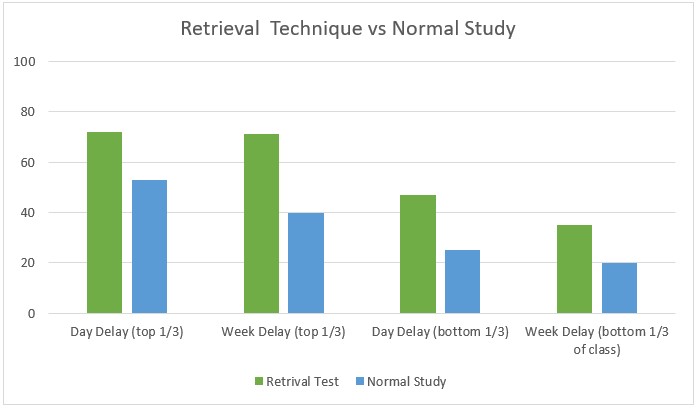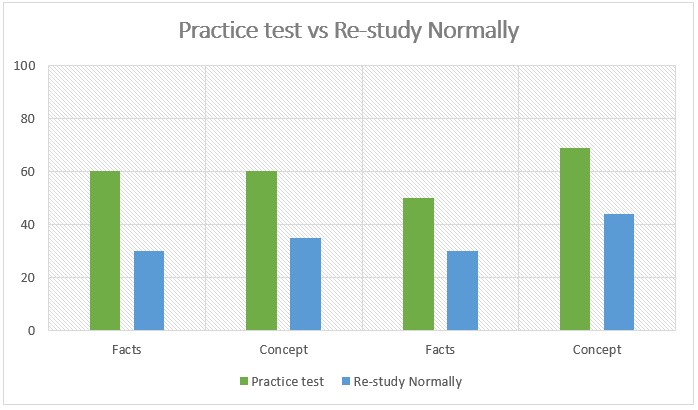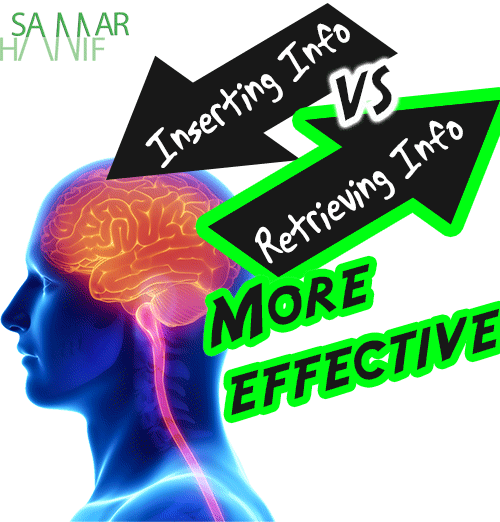Popular But Inefficient Ways
Different studies [1] show that students love the following study techniques but we will see that these are not good strategies for performing better in the exams.
Rereading
According to psychologists and researchers [2], rereading is relatively economical in terms of time demand but it’s relatively less effective having low utility. Rereading your notes or textbooks does improve your retention somewhat but compared to other options it’s pretty much a waste of time.
Highlighting
It does a little to boost your performance and it may help for difficult text or when you have the knowledge to highlight effectively. But it also has a low utility and negatively affects your performance on high-level tasks that involve inference making.
Summarizing And Making Notes
It also depends on how you make notes and summarize things. Students with a better understanding of how to summarizing things and make notes do perform better, but in a vast majority of learners, extensive training and practice are required to get the best out of this technique, which also makes it less wanted and feasible. If you are really good at summarizing, it is still not a great technique to consider when there are more effective ones available out there.
Active Recall: An Efficient Way
Active recall/ practice testing / active retrieval is the process of retrieving stuff from your brain. It has proved to be the most effective study technique among all [2]. It is not time-intensive and can be implemented very easily with minimal effort and training. The concept is when you study a topic after you finish it, take a practice test. This will do far better than actually reading the topic 4 times over and over again.
Experimental Study Comparison
In one study they made a group of students learn a topic. Then after a day later and a week later they tested them. Half of the students studied the topic with conventional popular study methods and the other half studied the same way but in addition, they had a practice test at the end.
So, the results they obtained are shown in the graph below. The top 1/3rd students of the class achieved around 50% results while the bottom 1/3rd got around 30% results with normal study methods. The other half that did the practice test at the end shown by green bars performed a lot better than the earlier ones. We see there is an increase of 15% in the top and 10-15% in the bottom performing students of the class due to just having a practice test at the end of their study session.[3]

Let’s see another more recent study done in 2010. They also split the students into two groups one group was gonna take the practice test and one group was gonna study normally with the most popular revision techniques. But in this study, they classified study material into facts and concepts and then test the students for each one of that type. They let the students study for once and had a test a week later and the results are as shown below. The blue bars show the students that studied the content and took the test a week later. And the green bars showing the students that read the content and took the test right afterwards and had the same test after a week. You can see there is a significant difference of up to 30% for the students that had a practice test.[4]

How To Do Retrieval Or Recall Technique
There could be many ways that you can retrieve information out of your brain like you can use a software application or mobile app like Anki to schedule some questions to notify you after a certain period of time so that you can recall them.
You can make notes with the book closed
You can read content from a book and then write all the text that you can remember afterwards with the book closed or simply write headings and recall everything about that. This will not be called making notes. Instead, it will be, recalling via writing down or making notes.
Write a question for your mind
Instead of wasting time in making well-arranged, beautifully highlighted notes, you should extract and note down the questions that you can make out of that content. These questions, you can later ask yourself as a revision strategy. If you prepare a whole list of questions out of your content and review those questions before taking an exam, you will do a lot better.
Conclusion:
In light of all the studies, we can say that the traditional study methods are more common among students but it’s been proven that reading over and over or inserting information into the brain is less effective than actually recalling or getting the information out of the brain.

References:
[1] Career et al 2003, Hartwing & Dunlosky 2012, Karpicke et al 2009, Komell & Bjork 2007, Wissman et al 2012, Callender & McDaniel 2009.
[2] “Improving Students’ learning with effective learning techniques: promising directions from cognitive and educational psychology” by Dunlosky J. Rawson KA, Marsh EJ, Nathan MJ, Willingham DT.
“A powerful way to improve learning and memory: practising retrieval enhances long-term, meaningful learning” by Jeffrey D. Karpicke.
[3] “Studies in Retention” Herbert F. Spitzer. Journal of Education Psychology, 1939.
[4] “Repeated testing produces superior transfer of learning relative to repeated studying” by Andrew C. Butler, Journal of Experimental Psychology 2010.